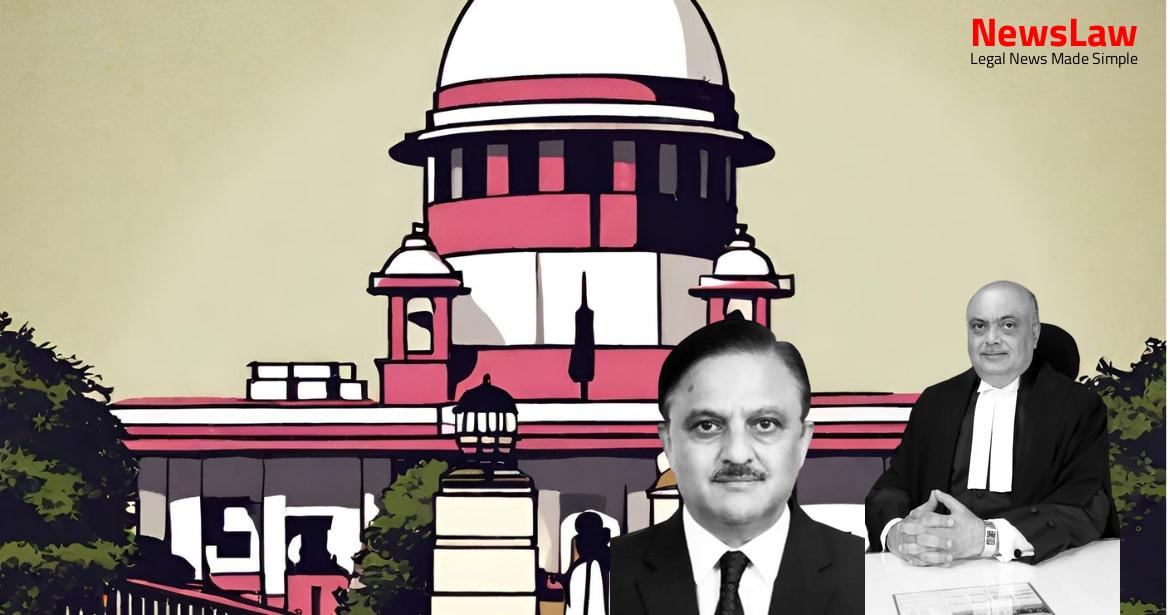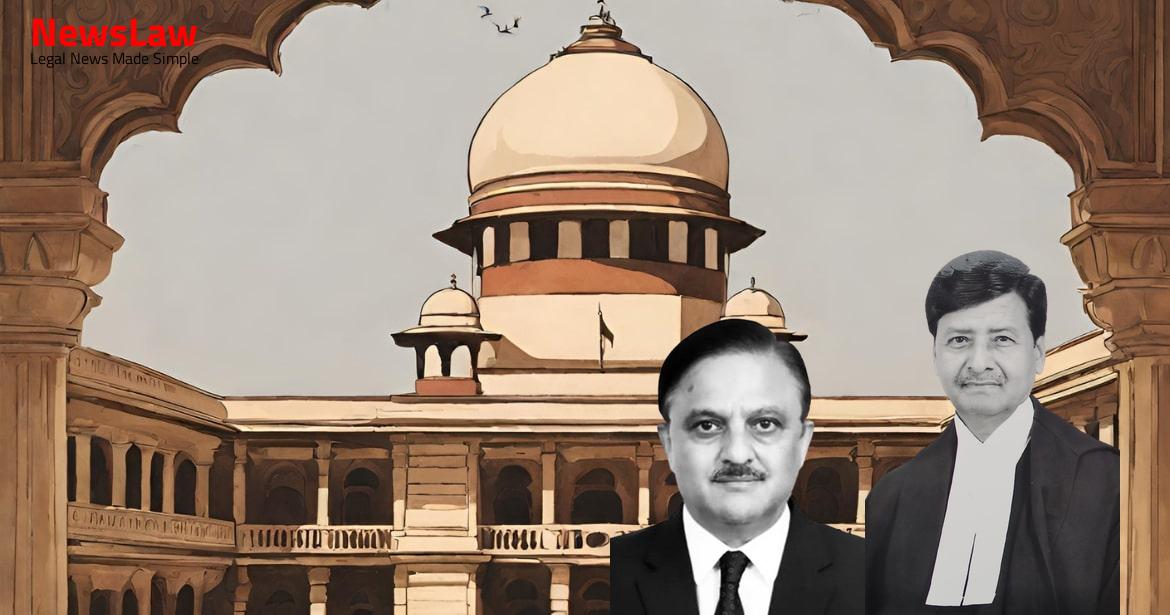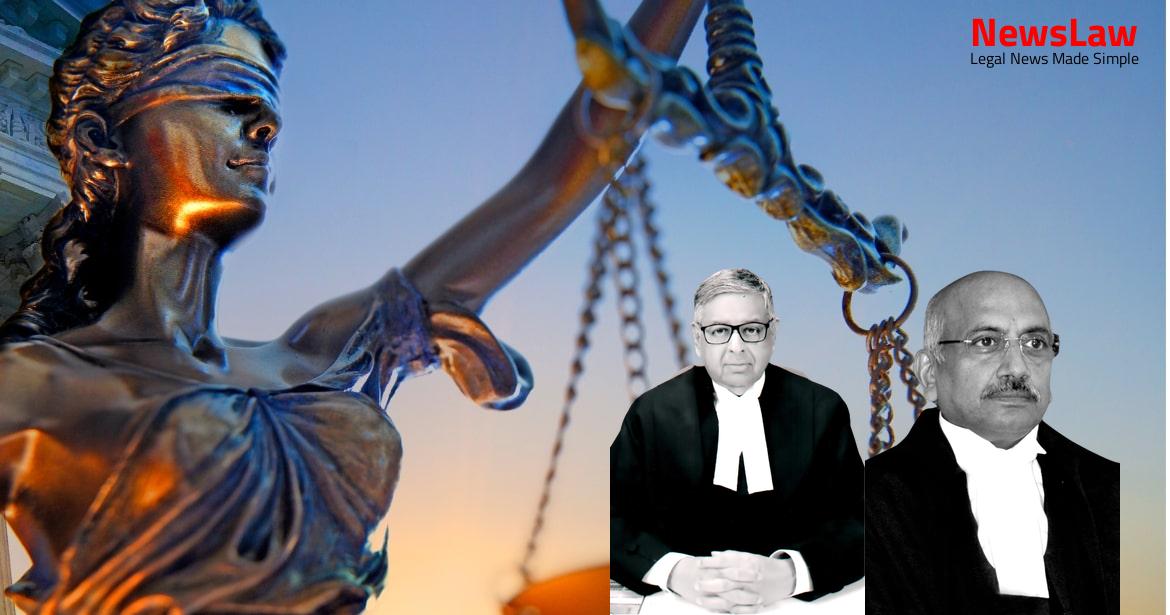In a landmark decision, the Supreme Court of India upheld the constitutional rights of employees in the employment termination case involving Bright Star and the State of India. The judgement sets a precedent for ensuring fair treatment and due process in employment matters, emphasizing the importance of upholding the rule of law and protecting the rights of individuals in the workforce.
Facts
- Learned Single Judge quashed the termination order dated 30.03.2013 as stigmatic in nature
- Regular enquiry should have been conducted before passing such orders
- Division Bench allowed the Writ Appeal filed by official respondents on 03.02.2020
- Appellant’s counsel argued that the termination order was passed without giving her a chance to be heard
- The rules stipulate a minimum tenure of one year for contractual appointees, but the appellant had served only 5 months and 15 days
- The curtailment of appellant’s tenure violated provisions of RGPSM which require a one-month notice for inefficient contract workers
- The State Level Committee found allegations of late attendance and unauthorized signatures on the attendance register to be true, leading to termination of the Memorandum of Understanding with Bright Star.
- The appellant received multiple Show-Cause Notices (SCN) regarding various charges such as failure to mark disabled boys/girls, allowing unauthorized entry to the hostel, and lack of cooperation with other officers.
- An order dated 30.03.2013 was passed, deciding not to extend the contract of the appellant due to unsatisfactory performance and dereliction of duty.
- The appellant alleged non-cooperation, mental harassment, and harassment for complaining about the hostel management.
- The appellant contended that efforts were being made to remove her from the post of APC using various tactics.
- Multiple instances of negligence in duty, like late arrivals and unauthorized entry of outsiders to the hostel, were pointed out.
- The appellant was also accused of obstructing appointments and other activities affecting education in the institution.
Also Read: Cheque Bounce Case: Upholding Legal Presumptions
Arguments
- The petitioner was removed from her position as Assistant Project Coordinator (APC) without any incident justifying such extreme action.
- The District Level Committee removed the petitioner, going against the RGPSM which states the State Level Appointing Authority is responsible for APC appointments.
- Orders from 09.03.2012 and 13.03.2012 mandated that contractual workers in the SSA cannot be terminated without a fair hearing, which the petitioner was not given.
- The petitioner’s removal was seen as a retaliatory measure for exposing misdeeds at a hostel run by Bright Star under the State’s authority.
- The contractual nature of the petitioner’s appointment meant that her service could be terminated if found unsatisfactory.
- The letter of appointment clearly stated the temporary and contractual nature of the position and the conditions under which the service could be terminated.
- The order dated 30.03.2013 was deemed as a simple non-extension of the petitioner’s contract without any stigma attached.
- The appellant’s allegations against Respondents Dheeraj Singh Dhakad were refuted by learned counsel.
- Complaints against the appellant included issues regarding punctuality and proper reporting in the hostel.
- Appellant admitted to occasional lateness but claimed to compensate by working late.
- Appellant failed to submit a report on hostel monitoring and improvements.
- Past appreciation letters were mentioned, but they were deemed insufficient to justify unsatisfactory conduct.
- Initial placement at Serial No.5 was due to lack of proper Certificate of Experience submission.
- Allegations of frequent absence from work and neglecting assigned duties were raised against the appellant.
- Appellant’s non-cooperative attitude affected various activities, including volunteer and MRC appointments in Arushi Institutions.
- Respondents did not reject appellant’s application despite an expired Certificate of Experience, indicating no bias.
- Learned counsel asserted that the impugned judgment was well-considered and required no intervention from Article 136 of the Constitution.
Also Read: The Case of A.S. Raghavendra vs. The M/S Bharti Airtel Limited: Workman Status Dispute
Analysis
- Clause 4 of RGPSM’s General Service Conditions outlines termination procedures for inefficiency and undesirable activities.
- The case presents a Catch-22 situation for the Respondents as the termination order did not comply with the one month notice requirement.
- Failure to mention background details or show SCNs in the order does not determine the nature of the termination.
- The real test to determine if a reduction in rank is a punishment is if it carries penal consequences and affects the officer’s future career.
- The order dated 30.03.2013 was a result of the process initiated by SCNs, which the Division Bench overlooked.
- A termination of service brought about by the exercise of a contractual right is not per se dismissal or removal.
- The termination of service by compulsory retirement in terms of a specific rule regulating the conditions of service is not considered a punishment and does not attract Article 311(2).
- The termination of service, if based on the right flowing from the contract or service rules, is not considered a punishment and does not carry evil consequences.
- If the government has the right to terminate employment without following the procedure for dismissal or removal, but chooses to terminate based on misconduct, negligence, or other disqualification, it is considered a punishment and Article 311 must be complied with.
- Not every termination of service is a dismissal, removal, or reduction in rank; it can be innocuous as well.
- The Respondents did not comply with Clause 4, leading to evil consequences for the Appellant and creating hurdles for her reemployment.
- The court must apply two tests: 1) whether the servant had a right to the post or rank, and 2) whether the servant has been visited with evil consequences.
- If either of the tests is satisfied, it must be considered that the servant has been punished.
- Termination of service without meeting the requirements of rules and Article 311 is wrongful and violates the constitutional rights of the servant.
Also Read: Date of Birth Discrepancy: Barsua Iron Ore Mines v. Employee
Decision
- The judgment of the learned Single Judge dated 20.06.2017 stands revived with modification.
- Appellant entitled to all consequential benefits including notional continuation in service at par with other employees, but back wages restricted to 50%.
- Denial of liberty to proceed afresh against the appellant as granted by the Single Judge.
- Impugned Judgment is quashed and set aside, allowing action against the appellant in accordance with the law in the future regarding her official duties.
Case Title: SWATI PRIYADARSHINI Vs. THE STATE OF MADHYA PRADESH (2024 INSC 620)
Case Number: C.A. No.-009758-009758 – 2024



